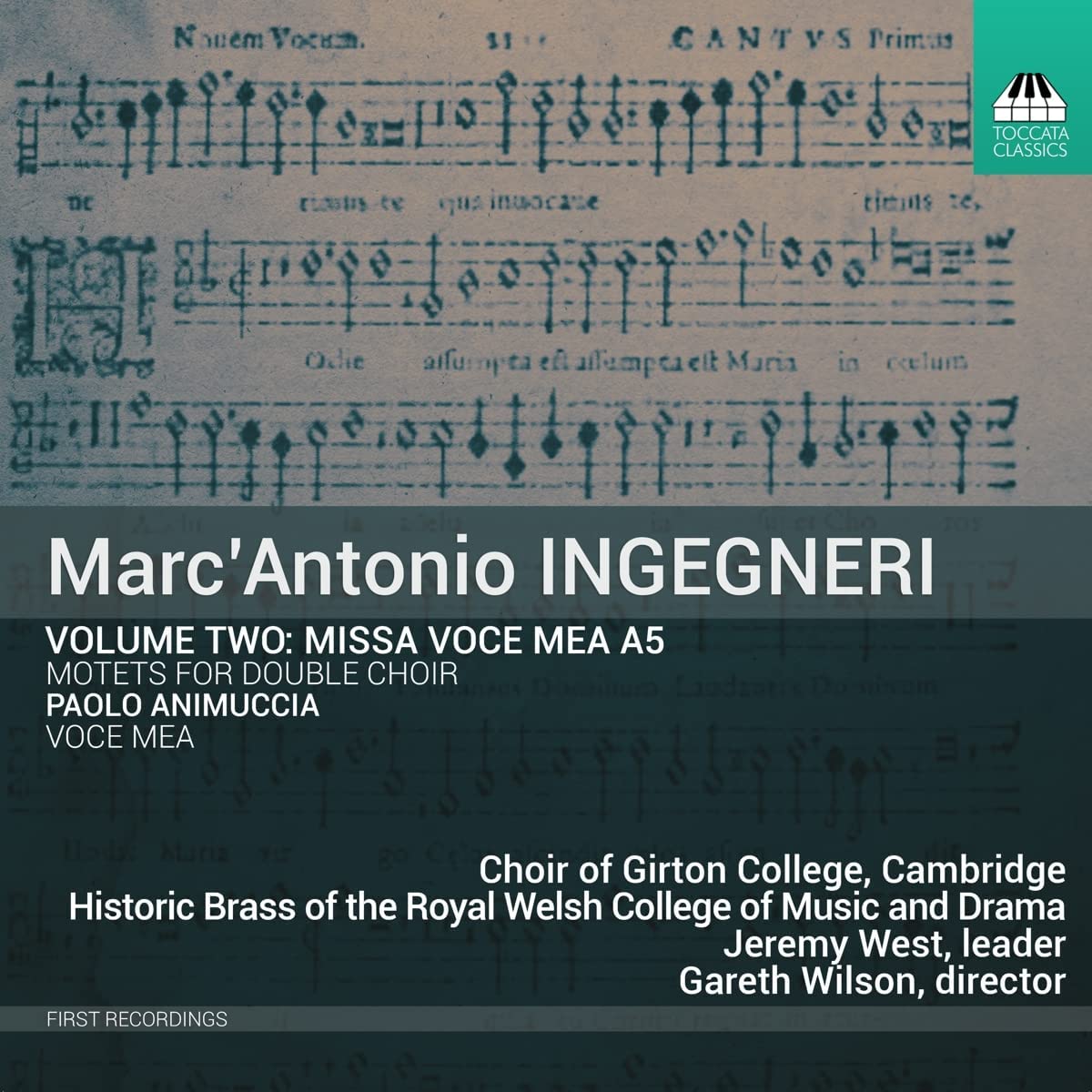Choir of Girton College, Cambridge; Historic Brass of the Royal Welsh College of Music and Drama led by Jeremy West, directed by Gareth Wilson
62:44
Toccata Classica TOCC 0630
Click here to buy this recording on amazon.co.uk
[The sponsored links are the only way you can support this FREE site]
My review of volume 1 (TOCC 0556) was posted on 12 April 2020. Those who enjoyed the recording will be pleased to know that Gareth Wilson adheres to much the same format in this second helping of Ingegneri. This time the Historic Brass does not embrace the Guildhall School of Music and Drama beside the Royal Welsh, and he includes the motet on which Ingegneri’s mass is based. The composer seems to have assumed that he was paying tribute to his teacher Cipriano de Rore, to whom this motet had become attributed even as early as the sixteenth century, but seemingly it is the work of the less distinguished but worthy Paolo Animuccia, whose brother Giovanni has a higher profile. Paolo’s motet Voce mea is nowhere near as fine a work as Palestrina’s Laudate pueri and it is surprising that the latter is not included on volume one as a prelude to Ingegneri’s mass which is based upon it. Although the ways in which Ingegneri uses Animuccia’s motet are audible and interesting, the inferior material renders this mass (which is in only five parts) less gripping than his Missa Laudate pueri (which is in eight parts) from volume 1. That said, there is a sumptuously beautiful passage built on suspensions which emphasize the profundity of the emotional appeal “miserere nobis” in the Gloria. The majority of the intervening motets are set to texts familiar from the works of significant contemporary composers, and it is interesting to compare Ingegneri’s creative responses to theirs.
Like its predecessor, this recording comes with a detailed booklet containing two impressive and readable essays. Carlos Rodriguez Otero, who sings tenor on this disc, tells us about “Ingegneri in focus: sacred music and religious life in Cremona”, while Gareth Wilson’s article “Ingegneri against the odds” is an enthralling account of how the challenges and obstacles thrown up by the pandemic were overcome in the making of this recording. For this reason alone it is worth supporting the disc.
Perhaps because of the circumstances under which the music was recorded, the Girton Choir sounds different –but not worse – on this album, with more of an edge to the tone, especially in the upper parts. This is by no means detrimental to Ingegneri’s music. As before Historic Brass have an equal role, playing some motets by themselves, or taking over sections of certain pieces, such as the second Agnus in the mass, or simply playing some parts while members of the Choir sing the others. There are also some gung-ho full passages such as the amens concluding the Gloria and Credo. Listeners will either like or dislike this approach, and will relish the variety of sounds or be annoyed by the switches of timbre. Or they will simply take it as it comes.
Richard Turbet
